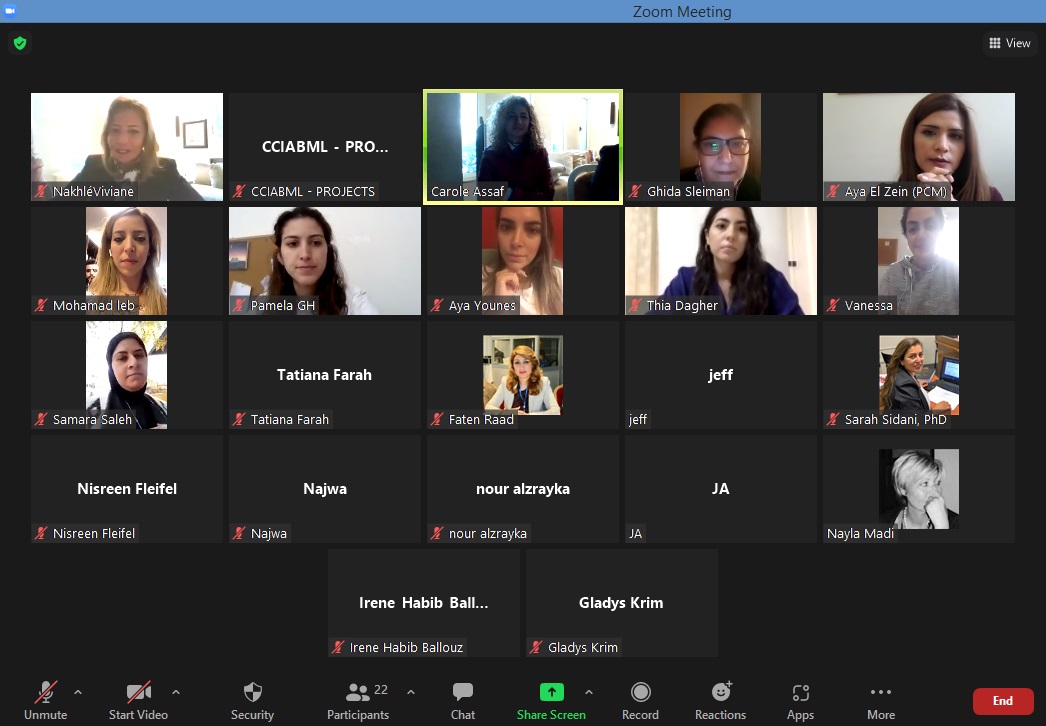.
أخبار



2021-11-25
Within the EU funded project INTERNSIA, the Chamber of Beirut and Mount Lebanon organized the last training in the series of capacity building trainings that targeted women, SMEs and public sector. The workshop took place over five consecutive days via zoom and brought together 25 executives from various Lebanese ministries, municipalities and public administrations who took part actively in discussions and provided their insights and perceptions towards best gender parity policies in workplace. The seminar was concluded by group’s project to draft out policies that could be advocated and applicable in the Lebanese public sector.
The key topics that have been covered throughout this seminar: Gender awareness, women inclusion policies and bylaws, human resources process to back up equality in workplace, integration of digital communication in raising awareness campaigns, women empowerment and leadership. The workshop hosted as well guest speakers in Social Dialogue Goals who highlighted the gender equality in Lebanon, also women from private sector contributed to the sessions as testimonials about gender parity best practices.

Ghida Al Haj Sleiman-Participant
First Controller-Civil Service Board
The workshop enriched my previous knowledge about legislation, international conventions, and applicable laws related to women's rights. It also helped me learn more about new topics such as digital divide and integrated digital communication to raise awareness about women empowerment.

Aya EL Zein-Participant
Head of Craft department -Ministry of social affairs
The workshop was an added value on all levels; it has enhanced our know-how about the importance of gender diversification in the workplace and the gap between best practices and what is currently implemented and how to tackle these issues along with HR process to ensure gender parity. Also the trainers were insightful and put in place new learning methodologies and the use of class rooms’ breakout for team work was excellent.
Riad Issa- Guest Speaker
Lawyer and social activist

Such trainings are essential to empower Lebanese women and remains the cornerstone for granting women economic and social independence and addressing poverty and unemployment and giving them the ability to participate positively in decision-making mechanisms.

Thia Dagher-Guest Speaker
Gender Based Violence Expert-International Medical Corps
The participant’s enthusiasm in the workshop and their eagerness to start changing our society’s views shows how much Lebanon is in need to start implementing laws and regulations to establish gender parity in all domains. I thank The Chamber of Beirut and INTERNISA project for inviting me to speak about gender equality and for prioritizing this issue in the Middle East and worldwide.


